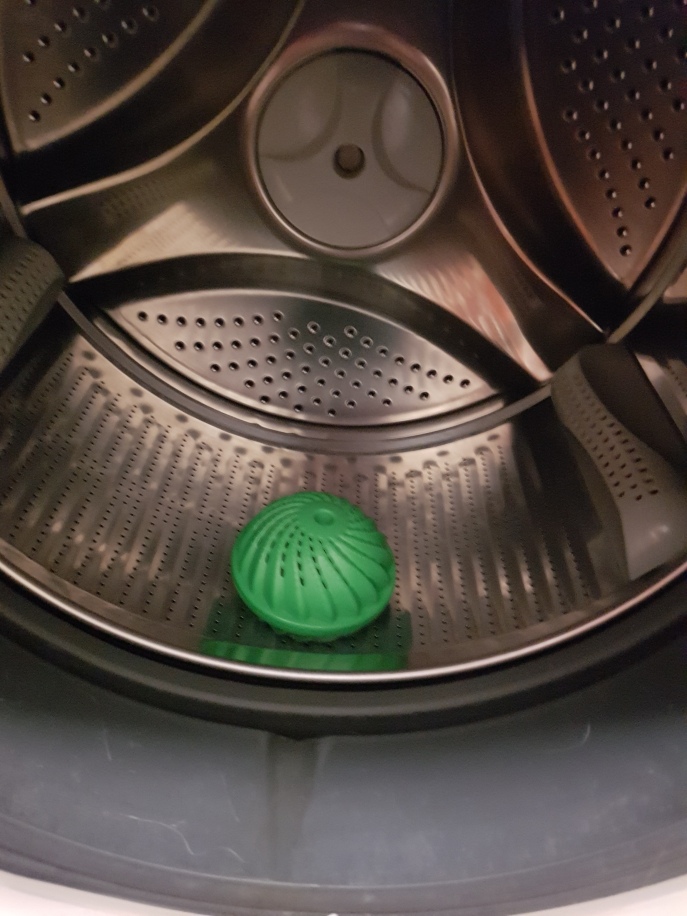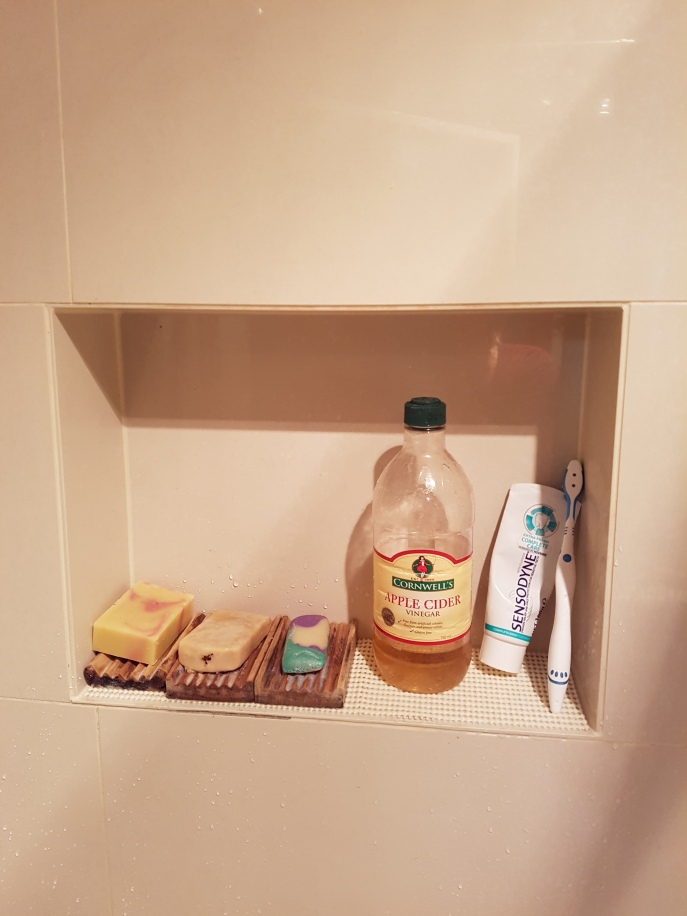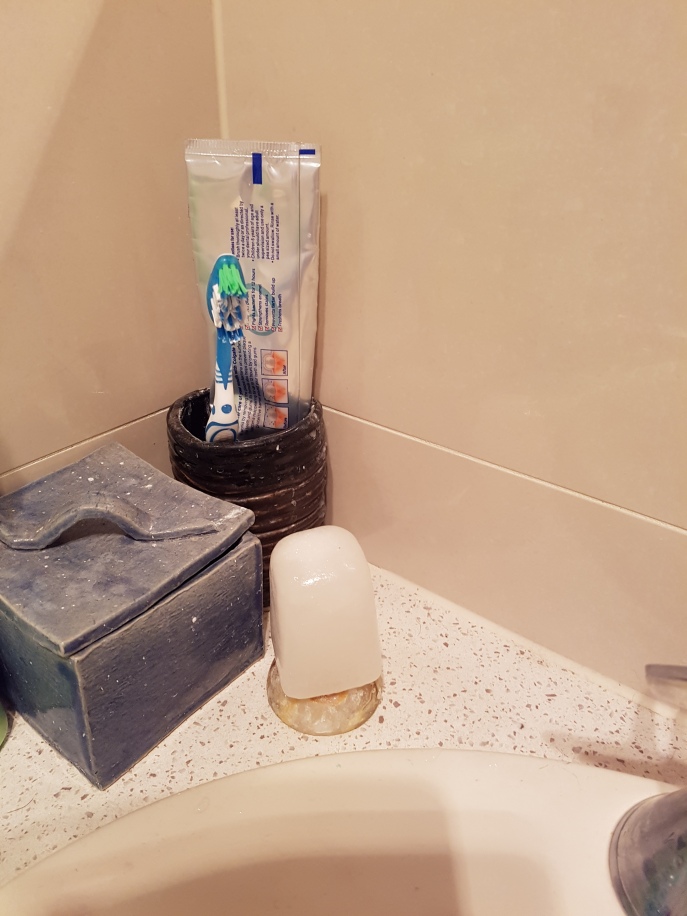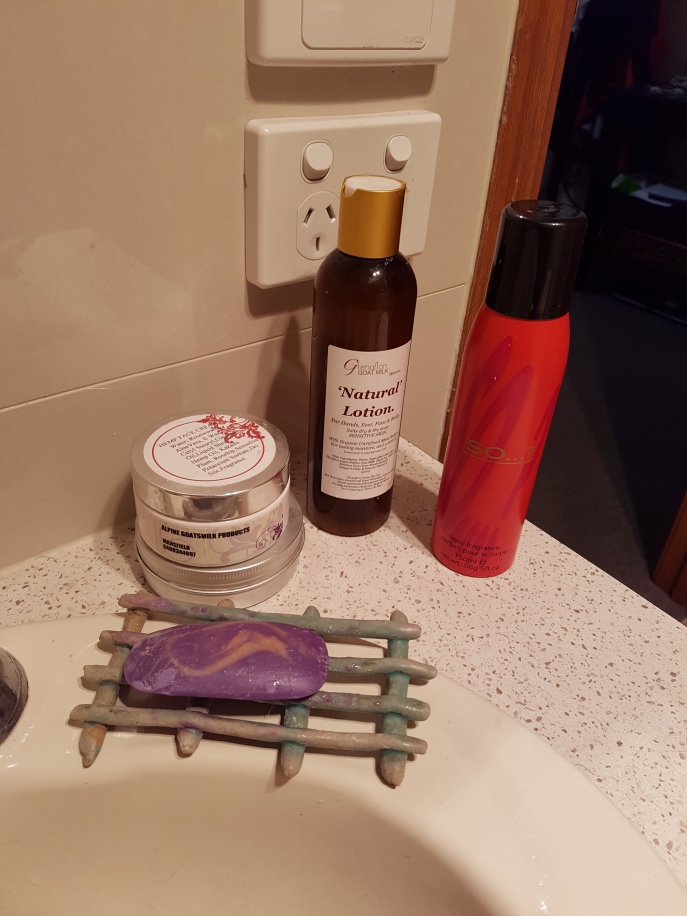There are so many products on the market for making people feel clean and smell nice. Most of them are overcomplicated, overpriced and kind of superfluous. But making the switch to more natural and simpler bath and body products can be a bit of a minefield.
Even for those of us who don’t get into perfumes and cosmetics, or who know better than to use a shower gel or antibacterial soap, it can be hard to know where to start or which alternatives actually work. Luckily for you I have tried a few. So here are my experiences, the products I use or buy and why, and a few examples of things that didn’t work for me.
In the Laundry
For years I found that regular washing powder made me itch. Growing up we had whatever was cheapest to wash our clothes in, which was usually some kind of concentrated powder. We never had fabric softener, and to this day the smell of fabric softener is so foreign to me that I can recognise it on a person from metres away.
After becoming the mother of a child with sensitive skin, I started looking for alternatives. We tried Lux soap flakes, which helped but were a pain to use because they had to be dissolved in hot water before use and can create a build-up of soap in your washing machine. I eventually settled on ionic laundry balls, which change the pH of the water in a similar way to which soap does. I have now been using laundry balls for something like ten years.

You don’t get whiter whites and brighter colours, but you get clean clothes. I use a stain remover for grease stains that don’t shift on the first wash. For extra dirty things I dissolve home-made soap shavings in water and let it sit for a couple of days until it forms a sort of gel, then add this to the wash.
Between this sort of washing and hanging wet clothes out to dry in the sun you get clothes that remain fresh for years even if worn very often.
In the Shower
As you will already know, I make my own soap and use this in place of shampoo as well. It is not uncommon for us to have up to ten different soaps in use around the house, between all the hand-washing stations and the showers.
Recent studies have shown that antibacterial detergents and hand-washing products (I won’t call them soap because they are far from it) can cause skin problems and leave us susceptible to infection as they kill the microbes in our skin. The skin microbiome is a relatively new discovery, and is considered to be as important to our health as the gut microbiome. Antibacterial products kill protective microbes and there is currently a push to discourage people from using them on their skin.
Real soap, made using the natural process of saponification rather than slapping together some sudsy chemical by-products, does not kill off your beneficial skin microbes. Real soap is slippery by nature of its alkalinity, and this causes germs and bacteria to be rinsed off or rubbed off when you dry your skin after using soap. Alkaline substances will cause your skin to become dry, which is why soap is made with a lelve of what is called a ‘superfat’. Superfatting soap ensures that even after the sodium hydroxide used to create the chemical reaction with the oils is all consumed, there is enough oil left in the soap to moisturise the skin. This is where skin-loving oils like olive oil, avocado oil and cocoa butter produce a soap that moisturises as it cleans. Natural ingredients like honey, tea, milk and oatmeal, as well as clays, botanicals and essential oils, can be added to real soap for extra healing, soothing and nourishing of the skin while you wash.
I’ve had people complain to me that they use body washes and hand washing detergents because they don’t like the slippery feeling that soap leaves. But this slippery feeling is what lets you know that you are getting clean without losing all your natural skin flora and moisture.
So now that you know a bit about real soap, you can understand why we use it so extensively. For hand washing, body washing and hair washing, even sometimes laundry use. You can use pretty much any soap to wash your hair, but things like avocado oil might leave it a bit greasy. We mostly use plain soap for hair washing, but the varieties with Rhassoul clay are a nice alternative.

Here is the shelf in my shower. It generally contains a hair soap as well as whatever varieties Matt and myself have in use at the time. Also note the apple cider vinegar. Those of us with longer hair use this to reduce tangles. It removes some of the fat from your hair and neutralises the alkalinity of the soap. And once it is dry I guarantee that you don’t smell like old apples.
I have tried bicarb and vinegar for hair washing, as well as just rinsing, but using soap works for me. And the rest of the family have adopted it as well. I have a few people who buy my soap specifically for washing hair, including one woman who says that it is the best thing she has ever used for washing her dreadlocks.
In the Bathroom
We are still using regular toothpaste, but for antiperspirant we have settled on alum stones. I tried a natural paste deodorant, which while not preventing perspiration at all did completely eliminate the subsequent odour. Unfortunately I developed a reaction to it after a couple of weeks so had to try something else.
I had been uncomfortable using commercial antiperspirants for a while. Roll-ons only really work for bare armpits, and the spray options caused an alarming stinging sensation that made me feel like my pores were shrinking away in terror. I believe that antiperspirants cause your pores to pucker up so that you don’t actually sweat, which can’t be good for you. Also, despite all the claims of offering ’48 hour protection’, not one antiperspirant I tried was able to keep me dry for much more than a few hours. Add to that my increasing distaste for the marketing around these products – I once found myself having to choose between two varieties named ‘Sexy’ and ‘Invisible’ and the irony struck a little too close to the bone.
We tried naturally formed alum stones, but these tended to erode, break and leave sharp edges. More recently I bought a stone from eBay, which you can see in the picture. It is dense and carved to a useful shape and it has been really great to use, as well as durable.
When I am at home working around the farm and garden I don’t use any form of antiperspirant or deodorant, I just sweat freely and rinse it off later. Often I can go a whole day without applying anything to my armpits and as long as I wear something well-ventilated, like a singlet, I don’t even smell at the end of the day. I think having actual armpit hair might work in my favour in this regard. Let the body do what the body does.

Some other products I use are made by friends with goats. Both the Glenafton Goat Milk and Alpine Goatsmilk moisturisers are beautifully light and last for ages. Which one I buy basically comes down to who I see at a show when I need to stock up. I leave lotions to the experts and stick to basic soapmaking, because these producers make great quality and excellent value products. I also have arnica salves from Glenafton and Alpine that I use on my frequent bruises.
You will see also in this photo that I use a body spray. I have a bit of a paranoia about people finding me smelly, so I still use a body spray in social and work situations. Many body sprays have dodgy names and creepy themes (like ‘Temptation’, ‘Tease’ and ‘Instant Crush’…), but I found one called ‘So…?’ which sounds like an awkward silence or an expression of ambivalence, and decided that was the one for me.
Due to the way I live and present myself there are a lot of things other people buy and use that I just don’t. Things like disposable razors or make-up removal products or protection for heat-treated hair. I don’t have a complicated personal maintenance routine, I just wash with soap, condition my hair with cider vinegar, apply some goat milk moisturiser and run a comb through my hair. It’s pretty minimalist, but it saves me heaps of time and money, and I’m not unnecessarily applying chemicals to my body.

Reblogged this on There Are So Many Things Wrong With This and commented:
What an interesting post! Thanks for all the ideas!